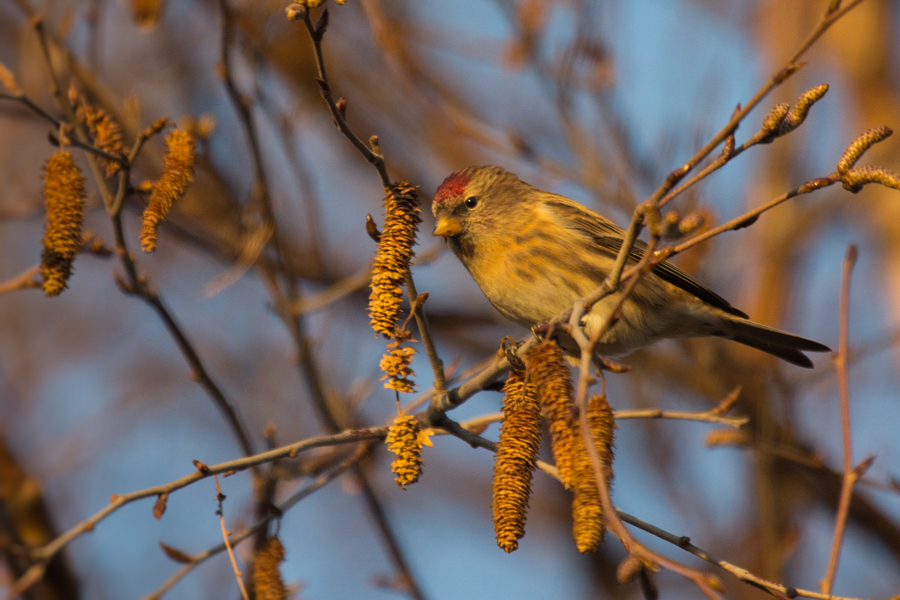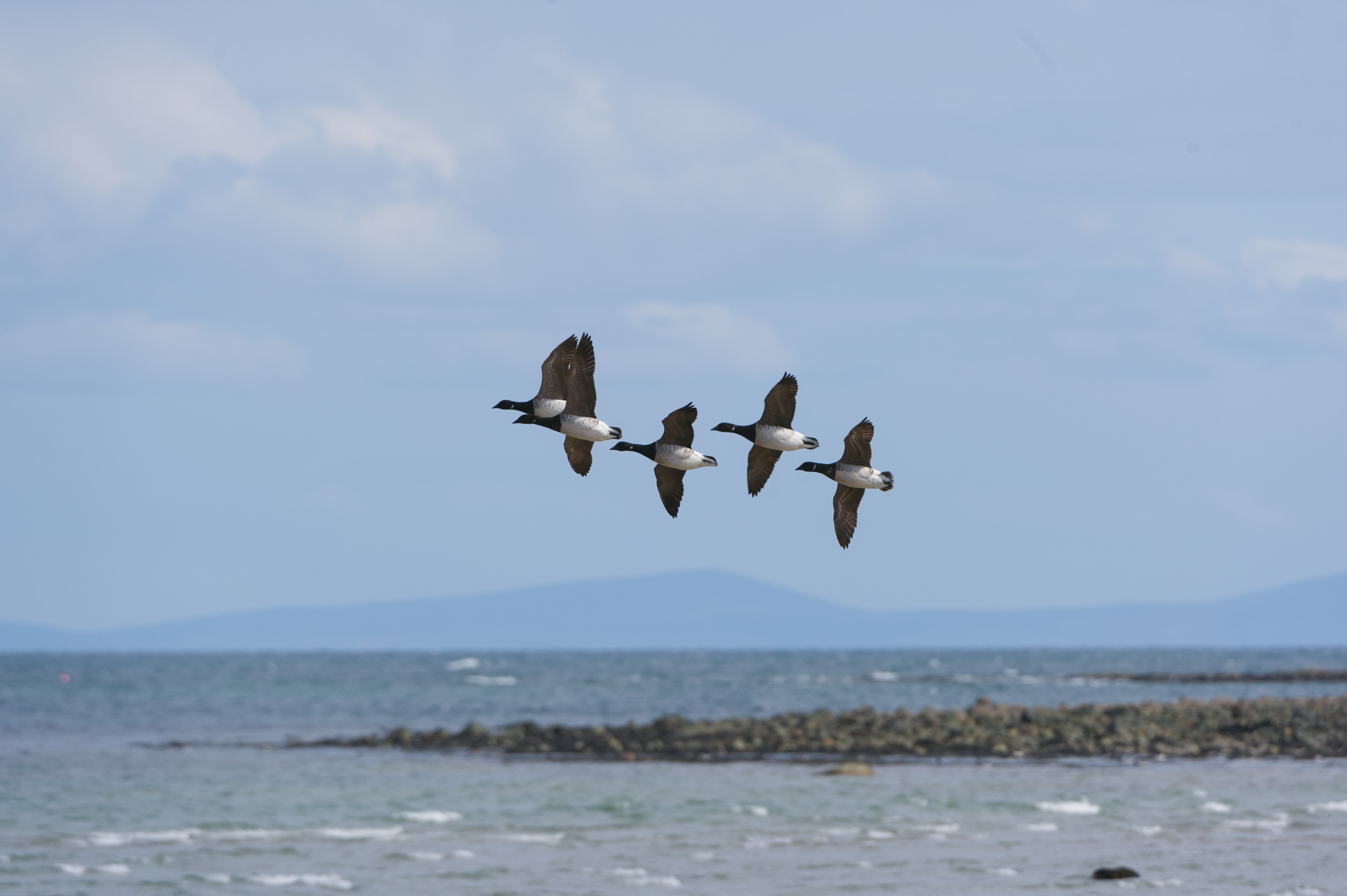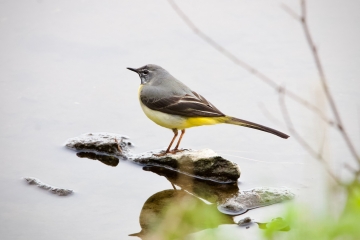Recent Sightings - 28th January 2019

Count taken at low tide on the morning of 28/1/19.
Two birds which have been infrequent visitors to Castle Espie this winter, but very rarely show up on this weekly count, are Redpoll and Siskin. (Redpoll above)
These two species aren't found at Castle Espie during the summer. The birds we see are more than likely migrants from Eastern Europe, Scandinavia or possibly even the highlands of Scotland. During the winter, when these areas become too harsh, cold and unforgiving, they fly further south to escape the elements. With bird feeders scattered around the sight and plenty of trees to forage and shelter in, Castle espie is a great place for these wee finches to winter. More elusive than our usual small passerines, but just as beautiful.
They are most commonly seen in the sensory garden and on the bird feeders in front of the garden hide.
Estuary – visible from the Brent Hide and the Limekiln Observatory
Curlew 9, Black-headed Gull 35, Oystercatcher 14, Shelduck 211, Brent 40, Redshank 4, Lesser Black-backed Gull 1
Main lake – visible from Sensory garden and Visitor centre
Teal 33, Shoveler 10, Gadwall 5, Tuft 29, Mallard 193, Moorhen 3, Coot 3, Greylag goose 1, Heron 1, Sparrowhawk 1
Shingle bank – visible from Sensory garden, Wadermarsh and Visitor Centre
Teal 23, Gadwall 11, Cormorant 1, Moorhen 1, Mallard 30, Pintail 1
Wadermarsh – visible from Wadermarsh lookout and Brent Hide
Moorhen 17, Oystercatcher 2, Black-headed Gull 1, Redshank 2, Black-tailed Godwit 2, Little Egret 1
Freshwater Lagoon – visible from Brent Hide and Crannóg
Mallard 42, Coot 3, Moorhen 7, Tufted Duck 1
Saline Lagoon – visible from Limekiln observatory
Little Grebe 3, Redshank 1
Limestone Lake
Moorhen 1,
Peninsula Field and Saltmarsh
Jackdaw
Brickworks
Jackdaw, Woodpigeon
Woodland
Jackdaw, Magpie, Jay, Blue tit, Great tit, Coal tit, Long-tailed tit, Goldfinch, Chaffinch, Bullfinch, Goldcrest, Wren, Blackbird, Song Thrush, Dunnock,
(Redpoll and Siskin seen during the week in the sensory garden and on the bird feeders seen from the garden hide.)



